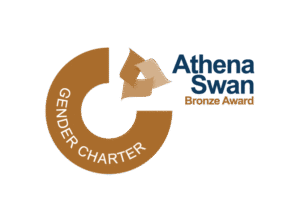 The panel is satisfied that the application adequately addresses the award criteria and is pleased to confer a Bronze Athena Swan award. The panel is satisfied that the application adequately addresses the award criteria and is pleased to confer a Bronze Athena Swan award.
The panel commends the leadership and senior buy-in which is evident in several ways, including:
· the strong letter of endorsement from the Director which communicates a solid organisational commitment to Athena Swan and demonstrates a clear understanding of the importance of Equality, Diversity and Inclusion (EDI) in improving service delivery and experience for all – the inclusion of Directorate initiatives in Institutional Athena Swan applications underscores the value of the work being undertaken (pp.5-6);
· the Director’s personal leadership and active development of a range of EDI-related initiatives (pp.9-12);
· resourcing a Data and Equality Officer (DEO) post which includes responsibilities to support EDI work, for example, reporting Directorate /user demographic data to the Senior Management Team (SMT) and maintaining the EDI newsletter (p.9);
· senior management representation on the Directorate’s Self-Assessment Team (SAT), including the Director and the Head of Operations (pp.14-15);
· recognition and reward of EDI work through both local (e.g., digital badges) and University recognition mechanisms (e.g., vouchers, annual review process, pp.10-11).
A clear governance structure for EDI is in place with accountability lying with senior colleagues (p.9). The panel commends the purposeful design of structures and processes to embed EDI in decision-making and in the culture of the Directorate, for example, the establishment of roles which explicitly involve EDI, the Dignity and Respect Advisor is a member of the SMT and Athena Swan will be a standing item at SMT meetings (pp.9-10, p.17, p.44). The links between the Directorate’s EDI work and University EDI governance structures appear strong, for example, the Director is a member of the University EDI Committee and the DEO sits on the University Equality and Diversity Monitoring and Reporting Committee (EDMARC) (p.9); these links ensure that the Directorate’s EDI/gender equality work is aligned with institutional strategy as well as providing opportunities for broader collaboration.
Similarly, processes for policy development and evaluation, including feedback routes, appear robust (p.13). The Directorate uses Equality Impact Assessments in respect of local policy/practice and staff perceptions of being informed about University policies relating to EDI are largely positive (although there is a disparity between male/female responses, p.13).
The SAT brings diversity of perspectives, including representatives from component teams and with different lived experience of members; the recruitment process, comprising expressions of interest combined with targeted invitations to ensure that the SAT reflects the diversity of the Directorate, is commended (pp.14-15).
A transparent account of the activities of the SAT from its inception until finalisation of the application, including a timeline (table 3), is provided (pp.16-17). Multiple data sources informed the self-assessment and a range of approaches have been utilised to capture the voices of the Directorate’s community (p.16). The Directorate’s plans to monitor and implement the action plan, which will be overseen by the SAT, appear robust and are commended (p.17).
As a result of a thorough analysis of the mandatory data and a critical evaluation of culture, a wide range of gender equality issues are identified (pp.18-26). The panel commends the:
· range of activity to develop a positive and supportive culture, including Mandatory Training Day, Friday messages, events for Ada Lovelace Day, EDI reading groups and promoting the University’s Don’t Cross the Line campaign (pp.23-26). The impact of these activities is evident in positive feedback about the culture of the Directorate (e.g., 83% of respondents to the EDI survey ‘felt the workplace was inclusive’, p.23);
· collection and analysis of data on contribution awards and pay;
· evidence-based and thoughtful approach to the use of a variety of benchmarks to support a nuanced analysis of the gender equality issues facing the Directorate.
The panel congratulates the Directorate on achieving a Bronze award.
Good practice examples highlighted
The panel considers the Directorate’s approach, led by the Wikimedian in Residence, to diversify Wikipedia writers and content, to be good practice. The Resident Wikimedian hosts regular events and workshops to train staff and students to edit Wikipedia entries and write articles to increase the diversity of subject and contributors (p.25). This work has been impactful in raising the profile of the limitations of Wikipedia (particularly to students), addressing the gender bias in whose stories are disseminated online and improving around 16,000 articles.
The panel also considers the PlayFair Steps initiative, including EDI recognition badges, to be good practice (pp.10-11).
More broadly, the panel commends the thoughtful consideration with which a variety of sector, discipline and regional benchmarks are used. |